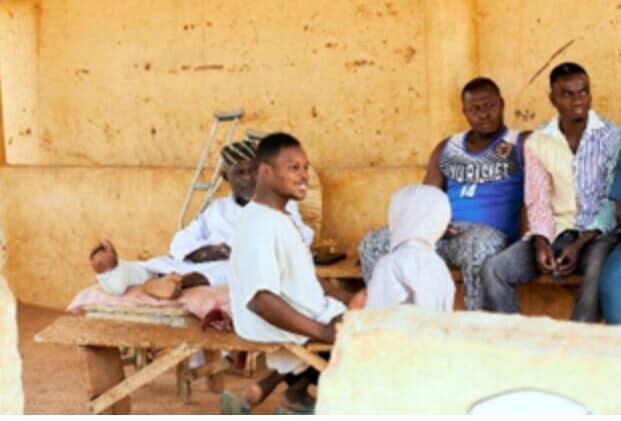Weeks after Togo recorded its first case of COVID 19 in March 2020, Azizi Sedou noticed a deterioration in the relationship between youth and authorities in and around Cinkassé town in Togo’s Savanes region.
“There was tension because the civilians did not understand why they had to close down their businesses or stay indoors,” he recalls.
Preventive measures to curb the spread of the virus—including the banning of mass gatherings, o closing of markets and businesses, and border closures—had started to take a toll on the economic and social well-being of the population as attempts to resist or enforce these orders often resulted in violent confrontations between security agencies and youth.
The frequent clashes concerned Azizi—he was often called on to intervene on behalf of the youth para resolve these conflicts and saw first-hand how the situation negatively affected social cohesion.
“Everyone was afraid that the situation would escalate,” he admitted.
Desde o seu regresso a Cinkassé depois de se formar em gestão de recursos humanos pela universidade de Lomé, Azizi had become a respected youth leader in his community. Além de seu ativismo para acalmar as tensões entre jovens e autoridades, he was also an advocate for the inclusion of and non-discrimination against persons living with disabilities. As a child, Aziz survived polio, but left him unable to use his legs. No entanto, this did not stop him from pursuing his dreams of providing others with disabilities the same opportunities he was given.
“Percebi que as pessoas com deficiência eram discriminadas, e assim como um dos poucos graduados universitários com deficiência, Eu queria mudar essa narrativa,” Aziz notes.

Azizi’s activism secured him a spot as one of 120 representantes da juventude receberão formação sobre prevenção do extremismo violento, construção da paz, coesão social, and early warning, um USAID/OTI initiative facilitated by Timbuktu Institute e organizado por Togo’s National Youth Council.
Depois do primeiro treino, Azizi was again selected, ao lado 19 other promising youth leaders, to participate in an advanced advocacy and conflict-sensitive communication session. “After the training is when I became a spokesperson for the youth, irrespective of their abilities, I understood what was meant by violent extremism, how the ongoing conflicts made our community vulnerable, and how to prevent violent extremism,” explica Azizi, who now goes from house to house to sensitize his peers and dele community about the need for social cohesion, early warning and preventing violent extremism.
Azizi and his peers from the training have engaged more than 1,000 homens, mulheres, and youth across Togo’s Savanes Region and continue to reach more residents. Como resultado desses compromissos, there has been an improvement in the relationship between the authorities and juventude, observed by greater collaboration between both parties for information sharing and providing security updates.
“My dream is of Cinkassé where everyone is at peace, onde existe essa coesão social, não há preconceitos baseados em etnias, posição social ou deficiência,” Azizi concludes.